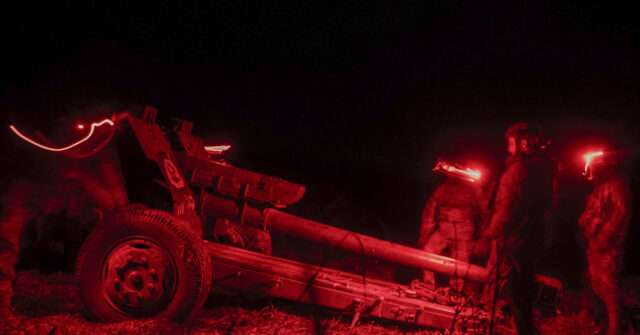Tensions surrounding the ongoing conflict in Ukraine have escalated with North Korea reportedly sending approximately 10,000 troops to Russia for training and combat purposes. According to Pentagon spokesperson Sabrina Singh, these soldiers are expected to arrive within the next several weeks, with some already moving closer to Ukraine’s borders, particularly in the Kursk region. This maneuver is viewed by Western officials as a formidable intensification of Russia’s nearly three-year war in Ukraine and could lead to heightened geopolitical tensions in the Indo-Pacific region as well. The presence of North Korean forces adds a new dimension to the conflict, pressing Ukraine’s already anxious military while potentially disrupting diplomatic relations and security dynamics in neighboring countries, including Japan and Australia.
The involvement of North Korean soldiers in the Ukrainian conflict seems to align with Russian President Vladimir Putin’s strategy to shift global power dynamics away from Western influences. Following a recent summit in Russia with BRICS nations, including China and India, Putin is seeking alliances that could help counterbalance Western military support for Ukraine. Additionally, Russia has turned to Iran for military assistance, receiving drones, while anticipated cooperation with North Korea highlights Moscow’s efforts to secure military supplies. NATO Secretary-General Mark Rutte underscored the seriousness of this development, labeling it a “significant escalation” and a dangerous extension of the war, which could further complicate the situation in Ukraine and beyond.
The timing of the North Korean troop deployment correlates with crucial diplomatic meetings set to occur in Washington, where U.S. Defense Secretary Lloyd Austin and Secretary of State Antony Blinken will discuss the North Korean situation with South Korean officials. This high-level dialogue indicates the gravity with which the U.S. and its allies are treating North Korea’s potential role in the conflict. Pentagon officials have indicated that, should North Korean forces engage in combat, they could be viewed as co-belligerents, which would have ramifications for U.S. military strategy and support for Ukraine. The prospect of conflict within a larger geopolitical context necessitates a reevaluation of how NATO and its partners might respond.
Russian Foreign Minister Sergey Lavrov dismissed concerns regarding North Korean troop involvement, asserting that Pyongyang and Moscow have established security agreements. Lavrov’s remarks were aimed at downplaying Western apprehensions, yet they also reflect an effort to highlight perceived hypocrisy regarding Western military assistance to Ukraine. Claims made by Ukraine and Western intelligence concerning the potential presence of North Korean troops are countered by Lavrov, who suggested that Western military advisors have been quietly operating in Ukraine for some time. This clash of narratives indicates a broader struggle for influence and legitimacy in the discourse surrounding the Ukraine conflict.
As Ukraine remains under significant pressure from Russian advances, notably in the eastern Donetsk region, its military situation continues to face deterioration. The news of a possible Donald Trump presidential victory in the upcoming U.S. elections adds another layer of uncertainty for Ukraine, as it might jeopardize the continuity of American military assistance crucial for its defense. Meanwhile, Russian forces have made inroads in capturing villages such as Tsukuryne, intensifying the already strained situation on the battlefield. The prospect of North Korean forces entering the fray further complicates Ukraine’s challenges, given the unpredictable nature of their combat effectiveness.
At a recent NATO gathering prompted by escalating tensions, Rutte indicated that the alliance is in active consultation with Ukraine and Indo-Pacific partners in light of the evolving security landscape. Despite discreet discussions about the possible military implications of North Korean involvement, there remains uncertainty about how NATO allies might formally respond. Specific actions, such as altering restrictions on the use of Western-supplied weapons by Ukraine, are potential avenues being considered, although clarity on the timeline or definitive measures remains elusive. Given President Zelenskyy’s assertions about imminent North Korean troop deployment and collaborative intelligence reports from American and South Korean sources, the situation is dynamic, warranting vigilant monitoring and strategic deliberation by Ukraine and its allies.

